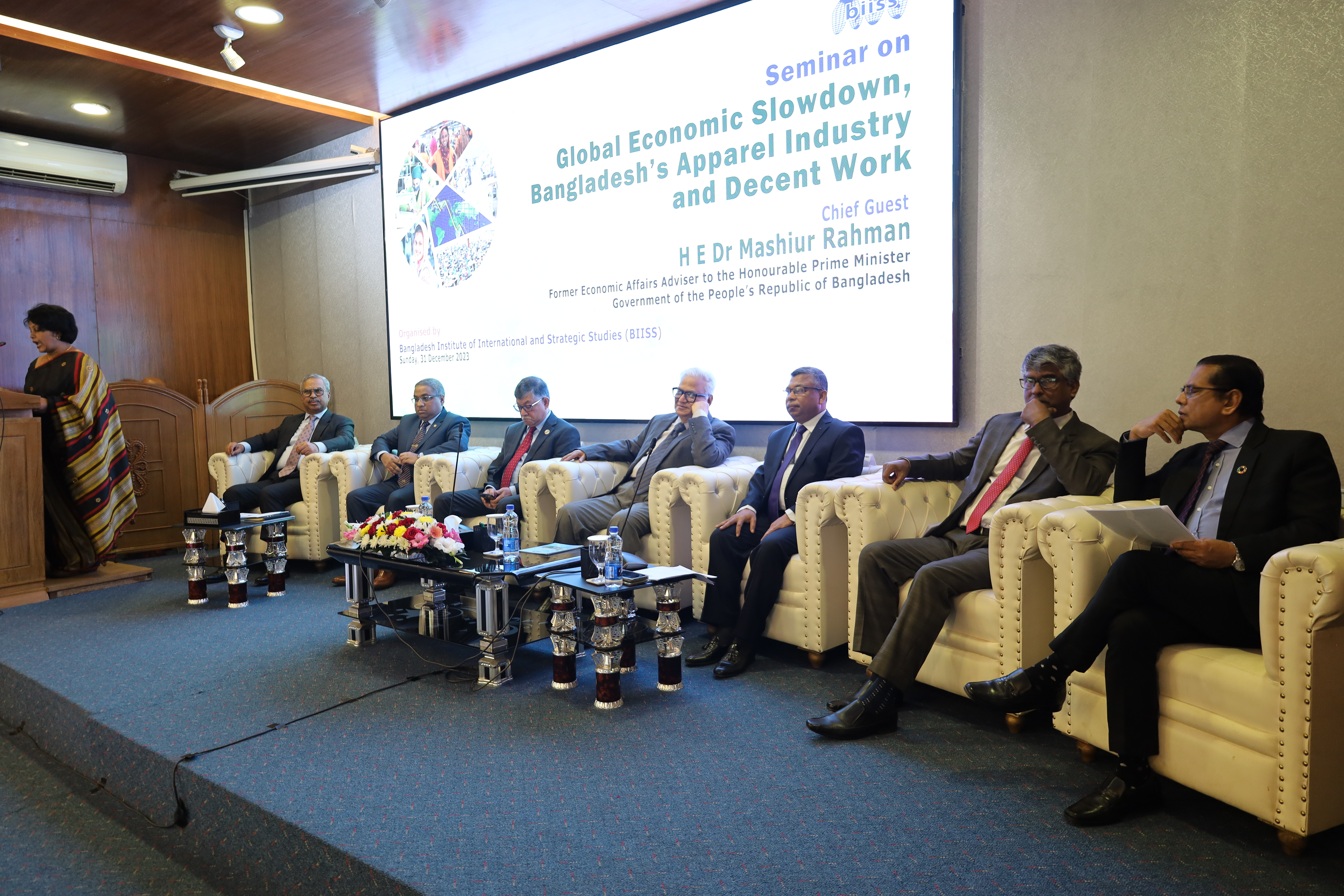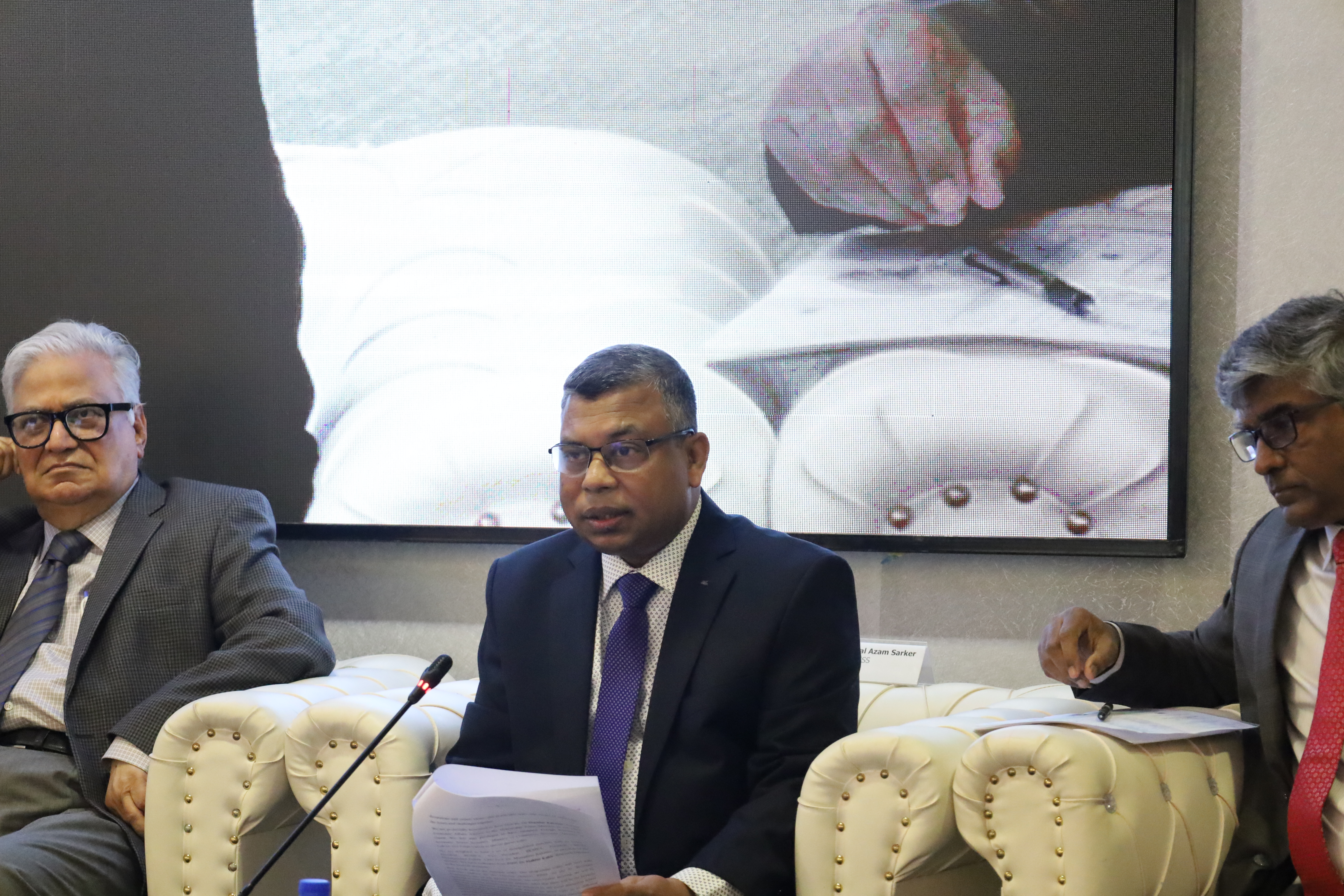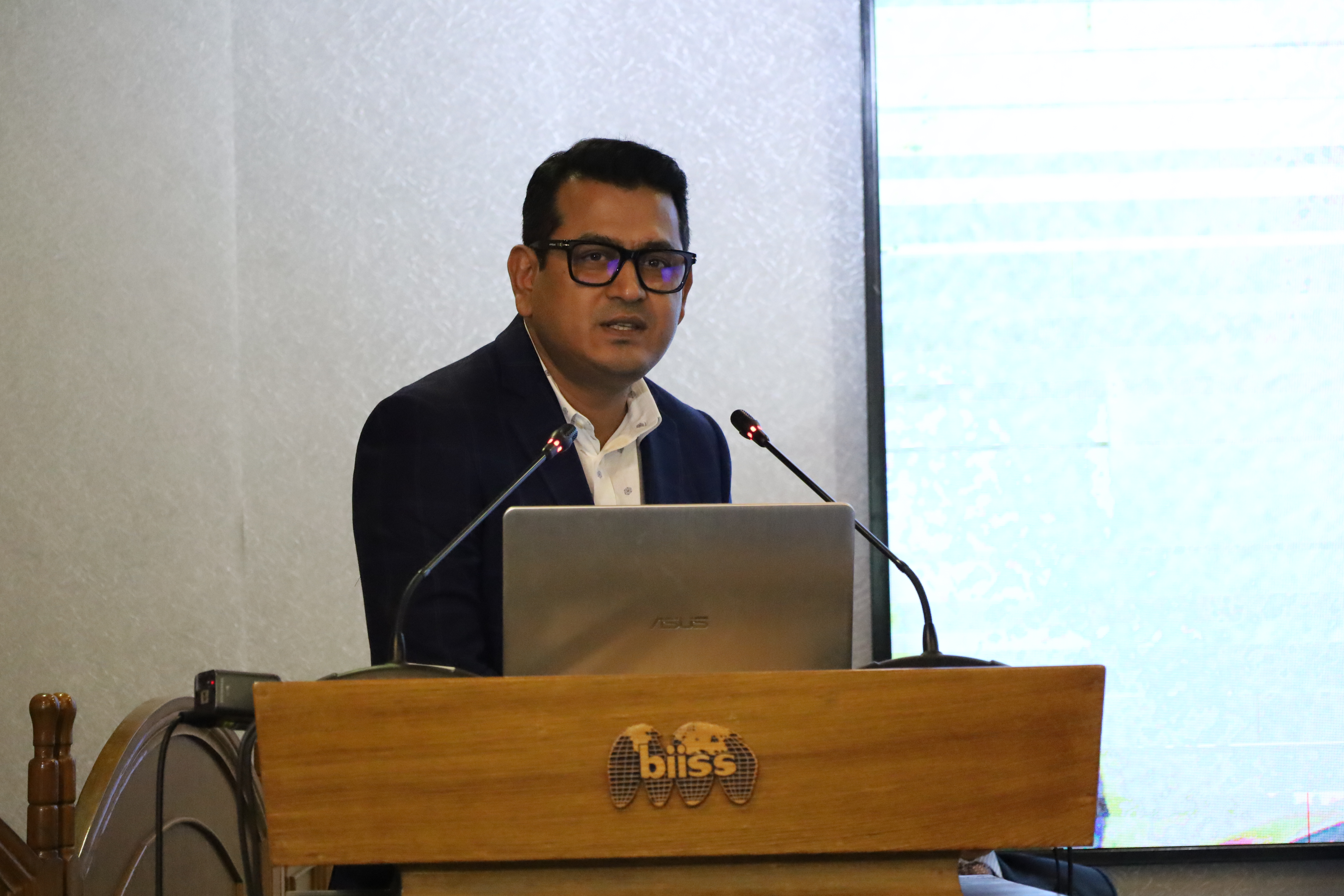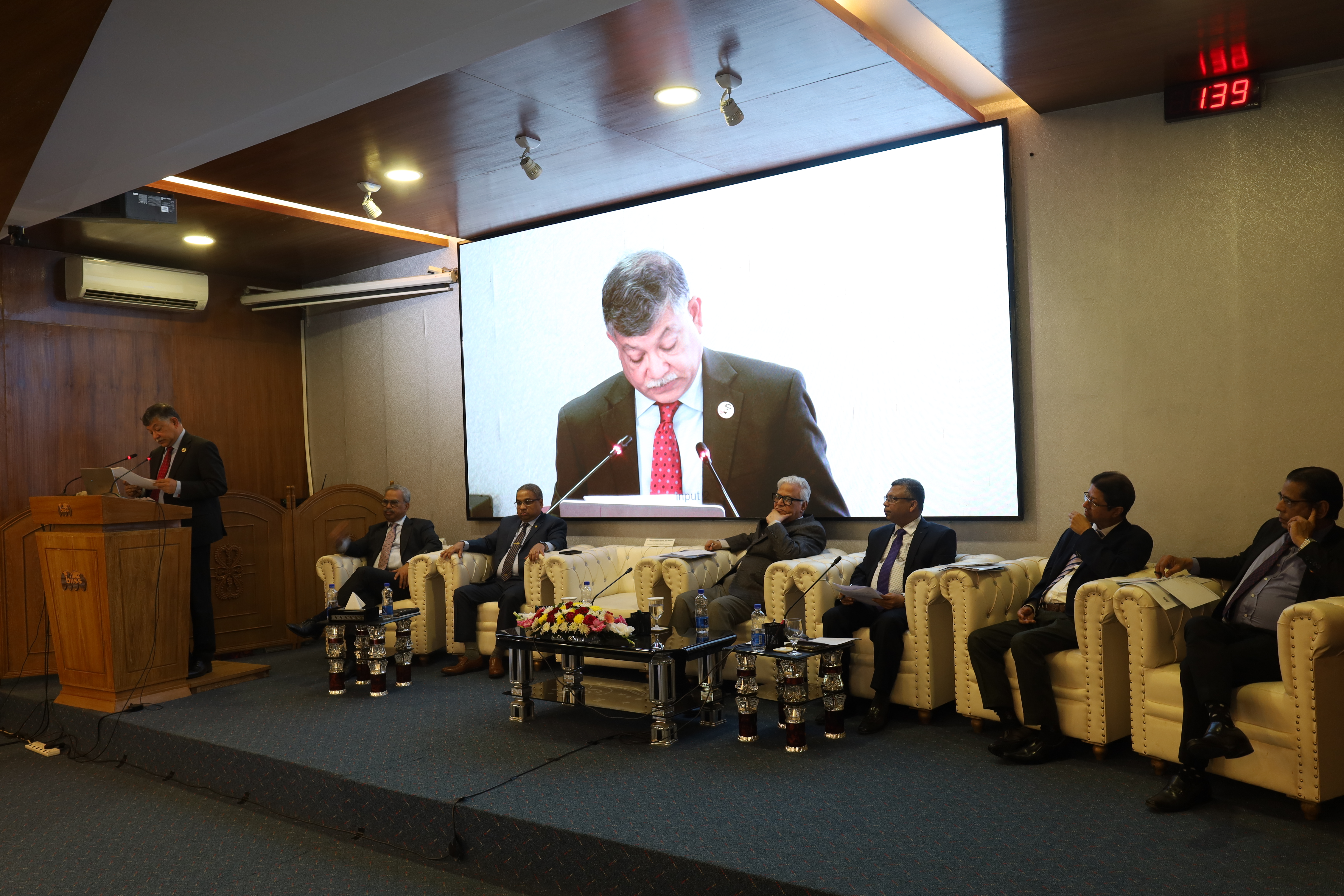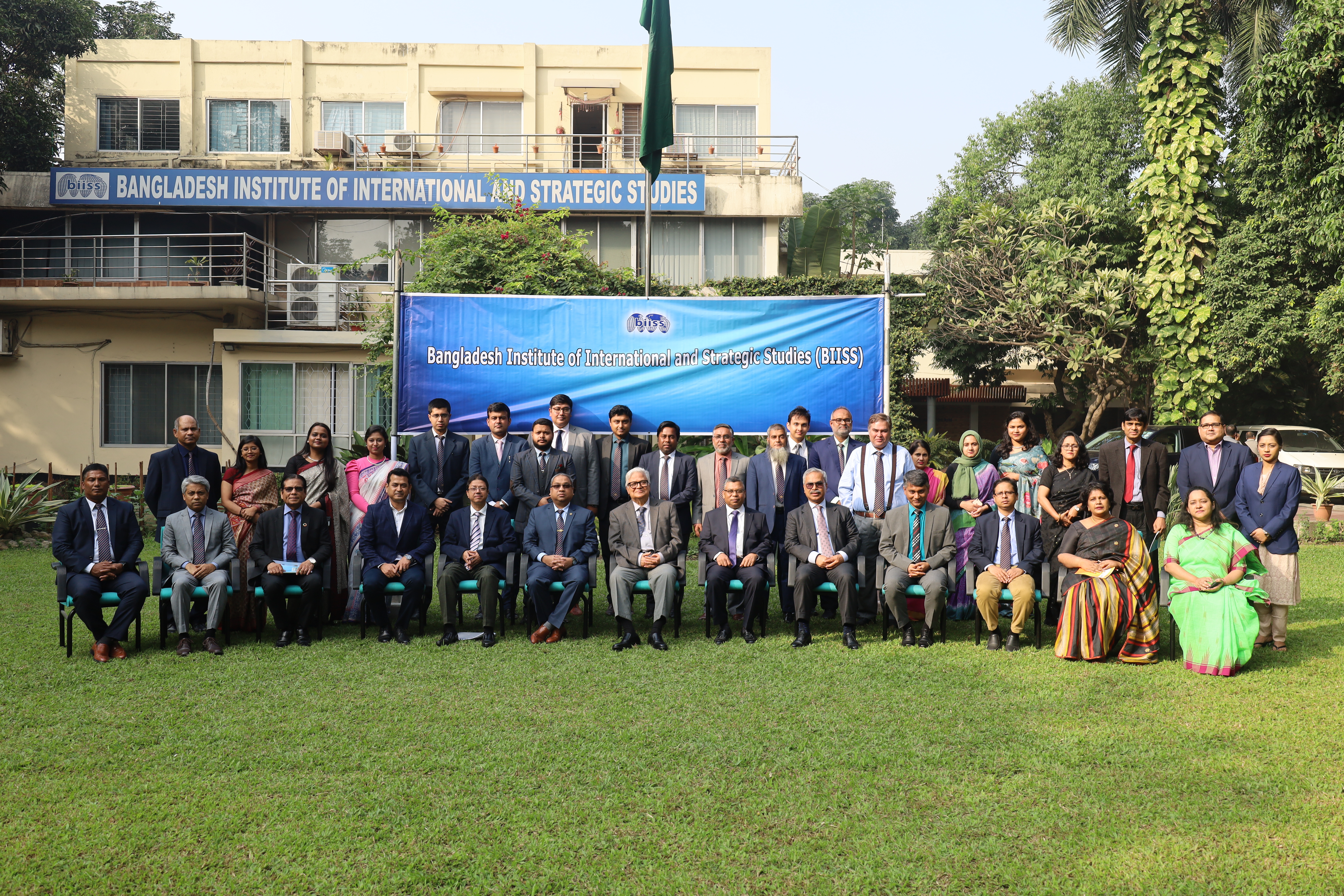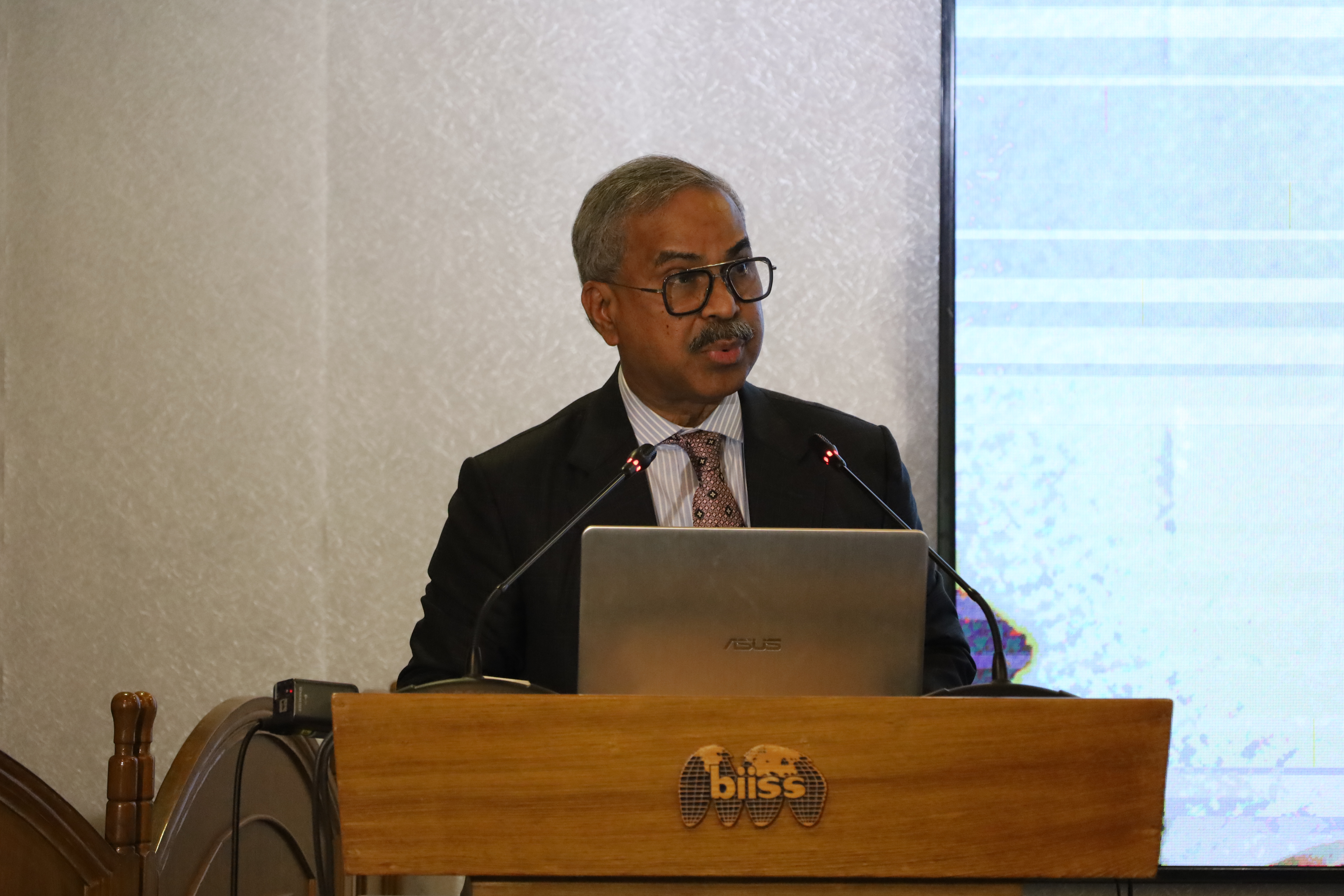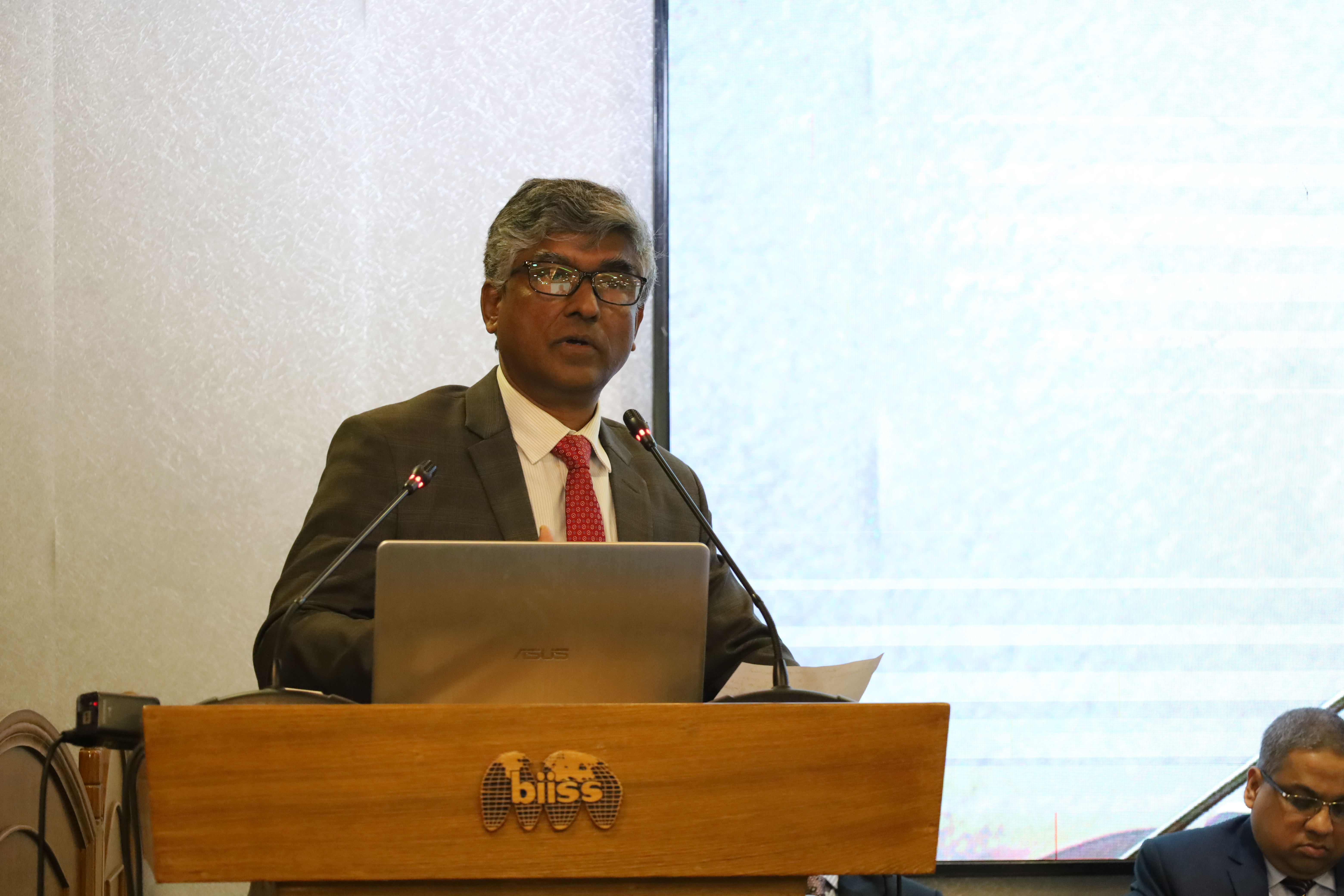Seminar on Global Economic Slowdown, Bangladesh’s Apparel Industry and Decent Work
DATE: 2023-12-31
Bangladesh Institute of International and Strategic Studies (BIISS) organised a seminar on “Global Economic Slowdown, Bangladesh’s Apparel Industry and Decent Work” on Sunday, 31 December 2023, at the BIISS auditorium. H E Dr Mashiur Rahman, the Former Economic Adviser to the Honourable Prime Minister, Government of the People’s Republic of Bangladesh, graced the seminar as the Chief Guest. H E Ambassador Masud Bin Momen, Foreign Secretary, (Senior Secretary) Ministry of Foreign Affairs, Government of the People’s Republic of Bangladesh, Mr Tapan Kanti Ghosh, Senior Secretary, Ministry of Commerce, Government of the People’s Republic of Bangladesh and Mr Md Ehsan-E-Elahi, Secretary, Ministry of Labour and Employment, Government of the People’s Republic of Bangladesh delivered speeches in the seminar as Special Guests. Major General Md Abu Bakar Siddique Khan, ndc, afwc, psc, G+, Director General, BIISS, delivered the welcome address and Ambassador A F M Gousal Azam Sarker, Chairman, BIISS, presided over the seminar.
Dr Mahfuz Kabir, Research Director, BIISS made a keynote presentation which was followed by a panel discussion. Mr Faruque Hassan, President, Bangladesh Garment Manufacturers and Exporters Association (BGMEA); Mr Md Akhter Hassan Apurbo, Vice-President, Bangladesh Knitwear Manufacturers and Exporters Association (BKMEA); Mr Kamran Tanviur Rahman, President, Metropolitan Chamber of Commerce and Industry, Dhaka (MCCI); and Professor Dr Mustafizur Rahman, Distinguished Fellow, Centre for Policy Dialogue (CPD) were present in the event as panel discussants. The panel discussion was followed by an open discussion where scholars from various sectors participated in the seminar and enriched it by presenting their valuable opinions, comments, suggestions, and observations.
Distinguished speakers in the seminar noted that Bangladesh is currently the second-largest exporter of RMG products which is a testimony to the dedication and hard work of millions of garment workers and owners. The country’s apparel sector has successfully secured its hold in new markets in Australia, Japan and South Korea. They commented that despite various challenges and odds in the global economy, Bangladesh’s garment industries have been playing a remarkable role. They mentioned that there are enormous opportunities and by exploiting those, the RMG sector can flourish further through internal and external diversifications. Designated speakers expressed their sincere aspirations that various positive measures taken by concerned stakeholders will help to grow further RMG sector of Bangladesh. They noted that Bangladesh has further amended the labour law and the government and garment owners have devoted their highest priorities to the safety and security of the garment workers. According to them, productivity is the name of the game and for higher productivity, the concerned authorities need to take proactive actions.
They further added that Bangladesh’s RMG industry marked a significant stride sustainably but in recent days it is facing challenges stemming from cost escalation which is in turn resulting from various factors like depreciation of currency and price hikes of imported and local inputs. To navigate the current challenges of the RMG sector, they emphasised ethical buying and sectoral diversification. Distinguished speakers in the seminar reiterated Bangladesh’s commitment to ensuring decent work for the millions of individuals employed in the industry and emphasised collective understanding, and innovative solutions to navigate through these uncertain times. Learned discussants also emphasised strengthening better industrial relations including promoting social dialogue and prioritising female workers’ skill development for the overall growth and stability of Bangladesh’s apparel industry. They also expressed their opinion in favour of adopting an integrated and comprehensive strategy to address the dual problem of depreciation of BDT and dwindling reserve. To face the potential challenges stemming from LDC graduation and the evolving geopolitical scenario, they emphasised the diversification of exports. Learned speakers touched upon the issue of the newly announced US labour policy and highlighted collaborative efforts among the government, entrepreneurs and labours to overcome any future challenges for the RMG sector. They commented that Bangladesh should strive to achieve the double bottom line of ensuring labour welfare and remaining competitive in the global market. They also reiterated on development of skills, which they suggested should be associated with a necessary wage raise. In this regard, they mentioned the role of the Honourable Prime Minister in setting up the new minimum wage through moral influence on concerned stakeholders.

